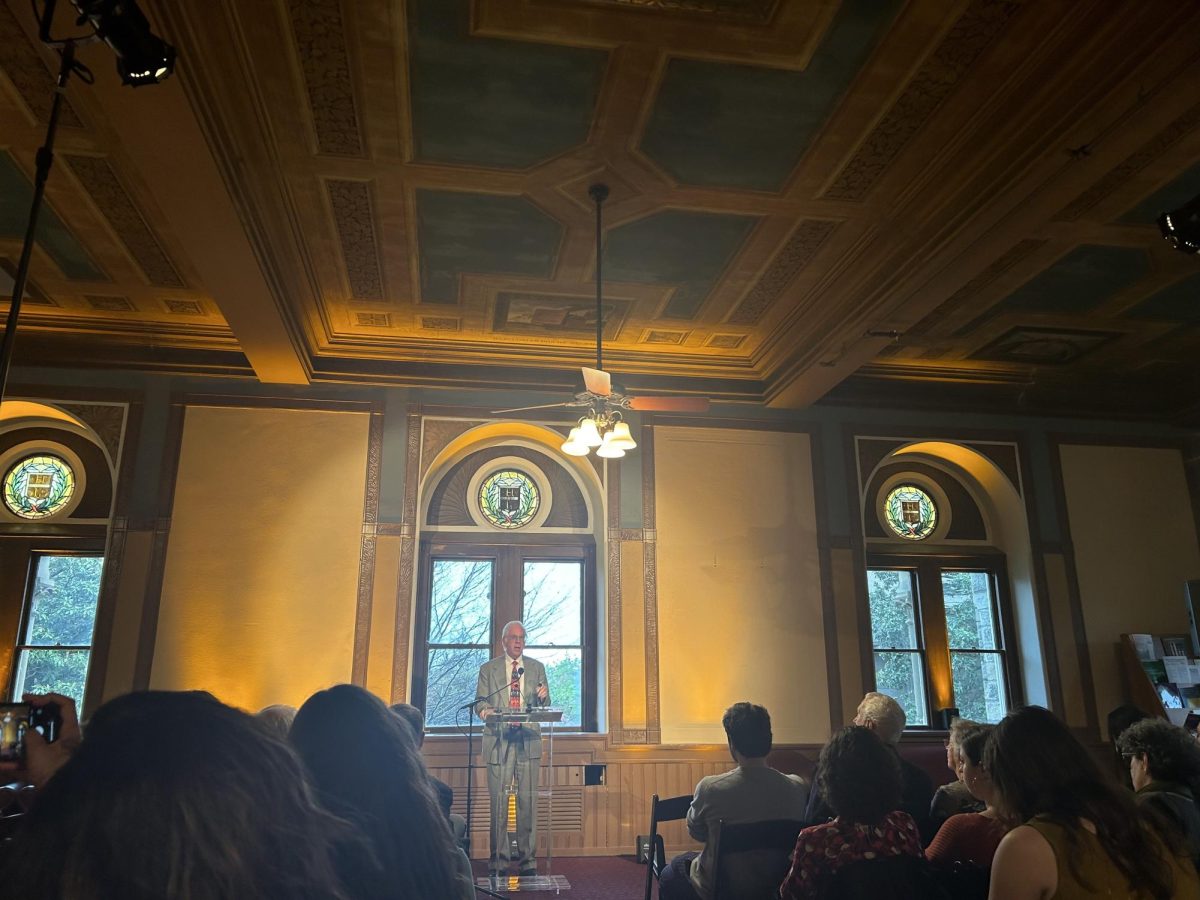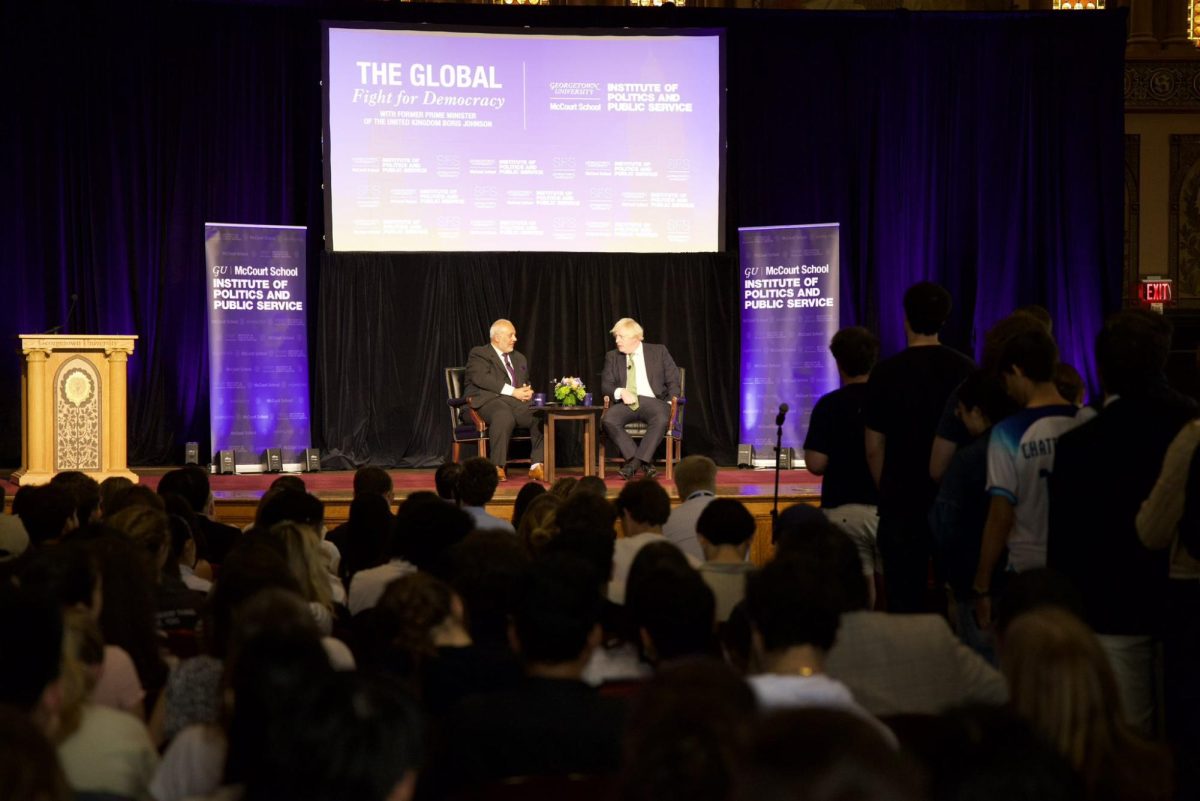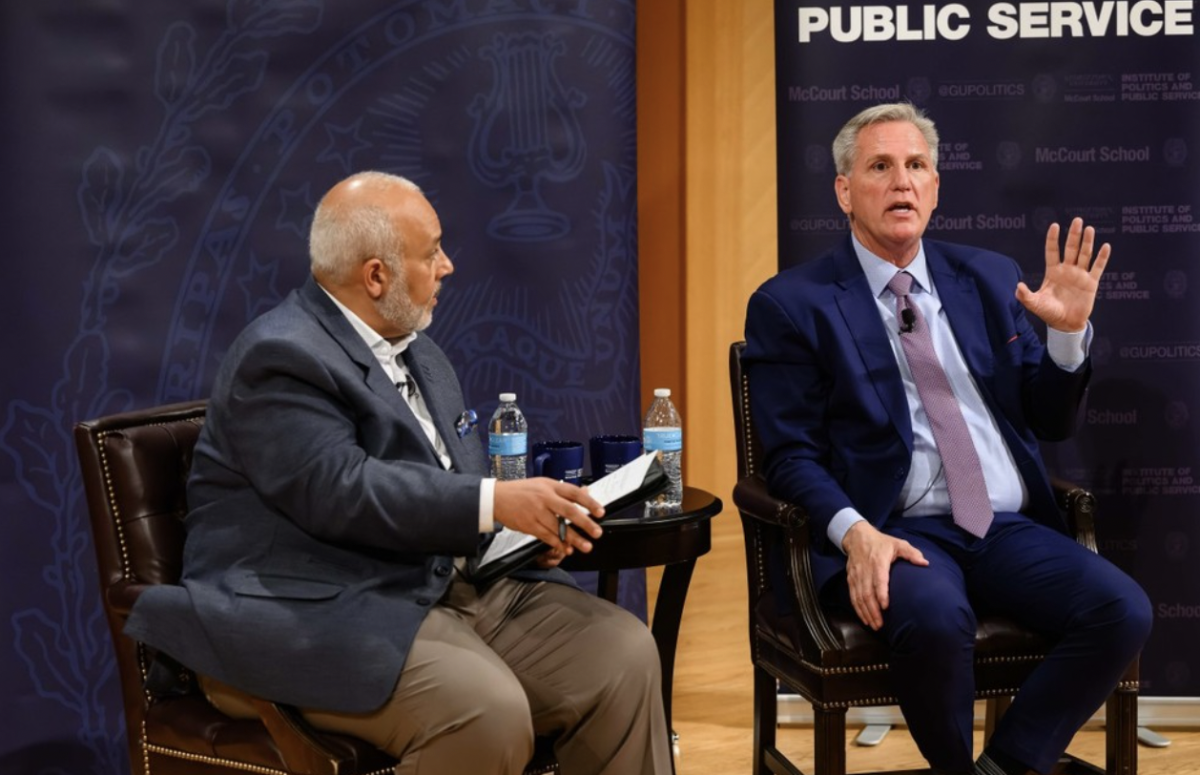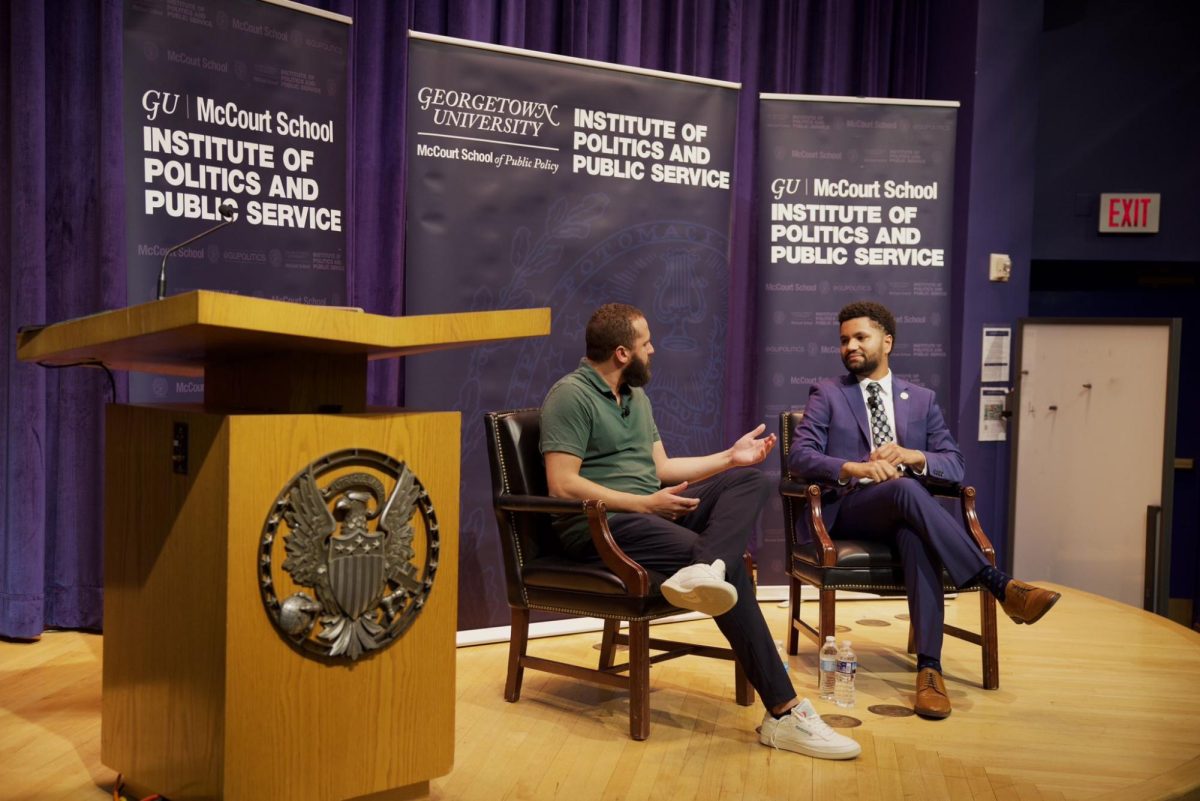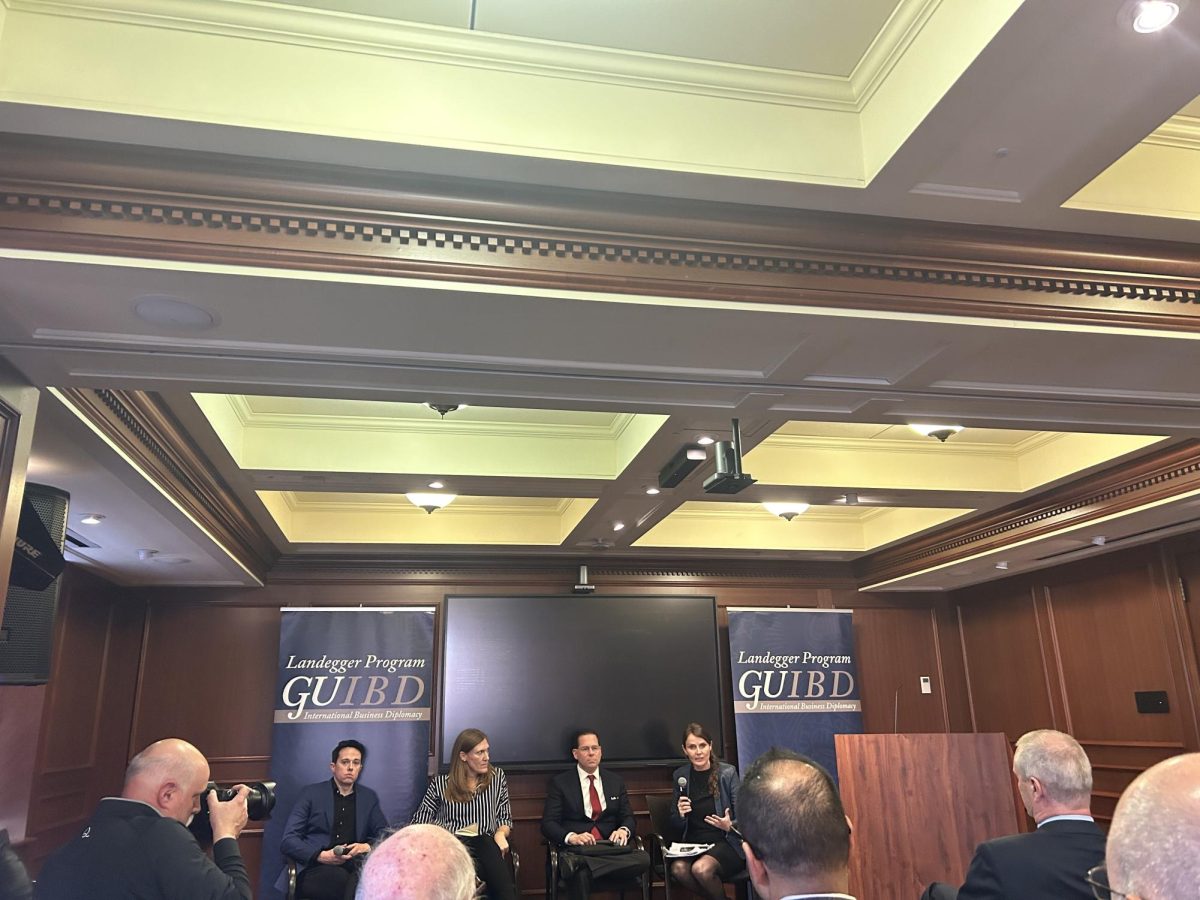General Charles Q. Brown, Jr., chairman of the Joint Chiefs of Staff, addressed a series of national defense policy questions for ongoing global conflicts at Georgetown University April 25.
Brown joined Dan Lamonthe, GU Politics fellow and national security reporter for The Washington Post, to discuss militarized conflicts in Ukraine and the Middle East, which continue to dominate U.S. defense and foreign policy dialogue. The event was hosted by the Georgetown Institute of Politics and Public Service (GU Politics) and co-sponsored by the Walsh School of Foreign Service (SFS), Security Studies Program, the Georgetown University Military and Veterans Resource Center and the National Defense Policy Initiative.
Although Brown said he was not expecting the Hamas attack on Israel on Oct. 7 in his first week on the job, he felt quickly brought up to speed.
“It’s what came onto the plate there, and from the very beginning, we looked at how do we deter future conflict, at the same time protecting our forces, and then supporting Israel to defend itself,” Brown said at the event.
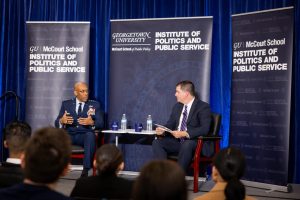
A former chief of staff in the U.S. Air Force and command pilot with more than 3,000 flight hours, Brown was sworn in as chairman on Oct. 1, 2023. His predecessor General Mark Milley joined the SFS in February 2023 as a distinguished fellow in residence.
Brown said he feels restraining broader conflict is integral to containing military escalation, particularly in response to Iran’s increasing military involvement in the Middle East. On April 13, after Israel attacked the Iranian embassy in Damascus, Syria, Iran launched a direct drone and ballistic missile attack on Israeli territory.
Brown said he believes Iran should not further escalate the regional conflict to avoid any spillover of the conflict.
“The things they do could be the spark of a broader conflict, and they need to think twice about how they respond and how they act, how they use their proxies,” Brown said. “I want to make sure that as we operate in the region –– as we say things publicly –– to make sure they understand our goal not to get to conflict.”
The U.S. military’s role in Israel and Gaza has expanded in recent months — most notably as U.S. troops progress in their construction of a pier off the coast of Gaza to facilitate the distribution of humanitarian aid.
Brown said the military’s expanded role in advancing the humanitarian dialogue is important as the Israel-Hamas war moves forward, with the pier acting as a catalyst.
“What it has done is actually energize various entities in humanitarian assistance,” Brown said. “This is not to be a long-term solution. But what it has done is start to energize and create dialogue.”
Brown also expressed appreciation for the $95 billion military aid package signed by President Joe Biden on April 24. With $14 billion allocated for Israel and an additional $1 billion for Gaza humanitarian aid, the majority of the package –– $60.8 billion –– is expected to head to Ukraine.
Brown said the aid package was especially crucial for Ukraine in a key stretch of fighting in the Russo-Ukrainian war.
“This aid for Ukraine is so important because when they’re provided with capability, they’ve been proven, they’ve been effective,” Brown said. “Ukraine was able to buy their army much more capable than itself. It was able to not only stop Russia from doing things very quickly, Ukraine was able to get back into service territory that was lost at the initial parts of the campaign.”
Brown also addressed more domestic concerns, including an increasing loss of public faith in the military. He said he emphasizes leadership by example, with officers upholding the nonpartisan nature of the armed forces and staying faithful to the office.
Brown said that despite challenges, he has full confidence in the military’s capability to navigate the ongoing geopolitical turmoils.
“I don’t have a lot of concern, because I have complete confidence in our force,” Brown said.
Brown added that in addition to developing individual branches and troop skill sets, collaboration is necessary as the military moves forward in an uncertain world.
“We bring it together with allies and partners, the interagency so that we are our adversaries’ worst nightmare,” Brown said. “Every day they wake up, they go, ‘Not today.’”









